I consider myself a runner. I love competing in longer endurance distances. I consider myself a half/full marathoner. Present tense thinking.
However, I fell and fractured my Elbow. I needed to take 10 months off from running.
Here is some of what I have learned as I began my walk, jog, and run back to my former athletic self.
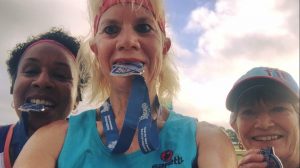
Training Tips For Older Runners
VISIT YOUR DOCTOR BEFORE RESUMING/BEGINNING SENIOR RUNNERS’ TRAINING
Starting off the list is *always* discuss your senior fitness plans with your doctor and receive clearance to proceed.
Your medical doctor knows you and your physical capabilities and will offer medical parameters for you to follow.
Your doctor may offer suggestions for the diet you may want to consider to boost your performance even further, containing quality calories from nutrient-dense, health-protective foods.
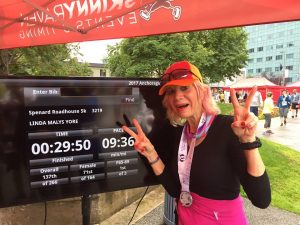
RE-EVALUATE YOUR GOALS/ FORGET PAST PERFORMANCES
Senior runners must accept that things have changed.
They must now evaluate results in direct relation to their workouts.
Adding extra recovery time and cross-training is one of the most important tips for aging runners.
I used to train four or five days a week, but I can manage three good solid training runs a week.
I am actively revising my expectations of senior training and racing, and reducing my training and racing volume.
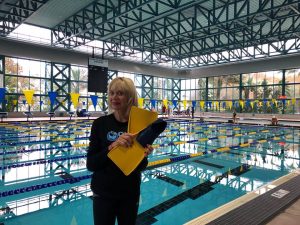
OLDER RUNNERS MUST MAINTAIN MUSCLE STRENGTH AND FLEXIBILITY
As we age, our muscles lose elasticity, making them more susceptible to aches, pains and injuries.
We older runners must take more precautions.
One great way is to warm up smarter when we walk, jog, or run: fifteen minutes of easy running, fast walking or five minutes of dynamic stretching are two great examples.
The top areas to target for any runner are the calves and hip flexors.
Also, running on soft surfaces as often as possible decreases unnecessary pounding on the pavement
OLDER RUNNERS: MONITOR YOUR RECOVERY
We senior runners need to recognize and admit we don’t recover as easily as younger runners.
We must become experts at monitoring and judging our recovery and not rely so much on the scheduled days off on our senior fitness training schedules.
the top priority is to do the next workout only when you feel recovered.
May take a day or two, sometimes longer depending on the session. From a training perspective, caution now rules!
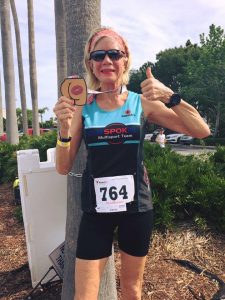
DOING RESEARCH IS ONE OF THE MOST ESSENTIAL TIPS FOR OLDER RUNNERS
I’m reading former Olympian runner Jeff Galloway’s Book, Running Until 100, because I plan to live till I’m one hundred years old, and I’d certainly like to run and compete as long as I can.
Mr Galloway’s books have introduced me to his run-walk-run senior training method which I use during all my training runs.
I’ve had the pleasure of meeting Mr Galloway several times at various run expos and I strive to attend his clinics when he is in town.
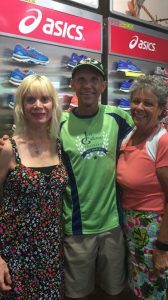
I hope you learn from these training tips for older runners!!!
What are your training tips to stay physically healthy to walk, jog or run faster and farther? Post comments below. I look forward to learning from you.
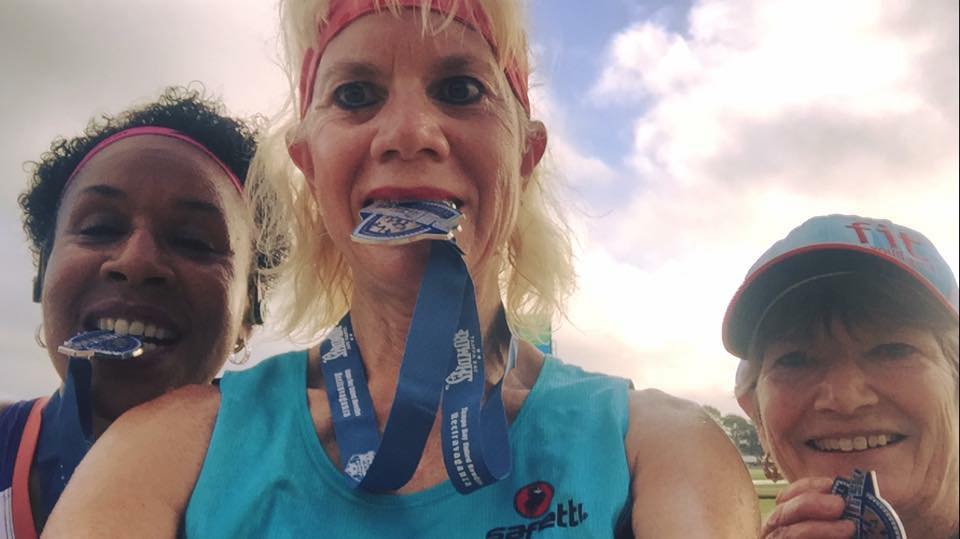
 Best Day Trips From Paris: 16 For Your Bucket List!
Best Day Trips From Paris: 16 For Your Bucket List!
Christine Russo
Excellent information. Being a senior athlete IS different. Thank you for the gentle reminders. We can do, in mind body and soul, just at a different level. Keep posting, your doing great.
Linda Malys Yore
Thank you Christine. This one was a hard one to write because I had to confront the idea that I am a “senior” runner. But necessary nonetheless to survive and thrive in the sport.
Maureen Wallace
Great blog to follow.
Linda Malys Yore
Thank you Maureen!